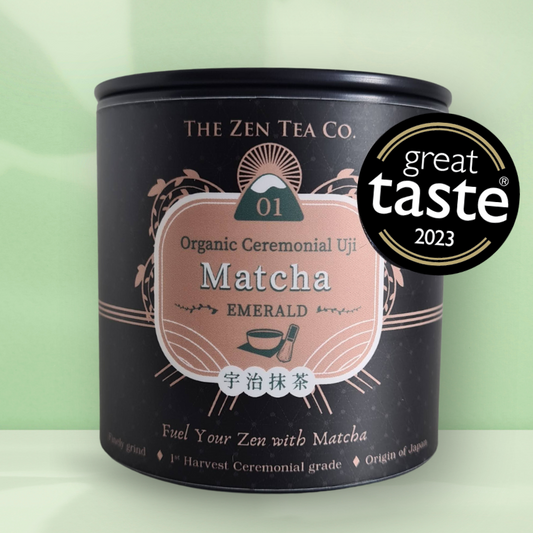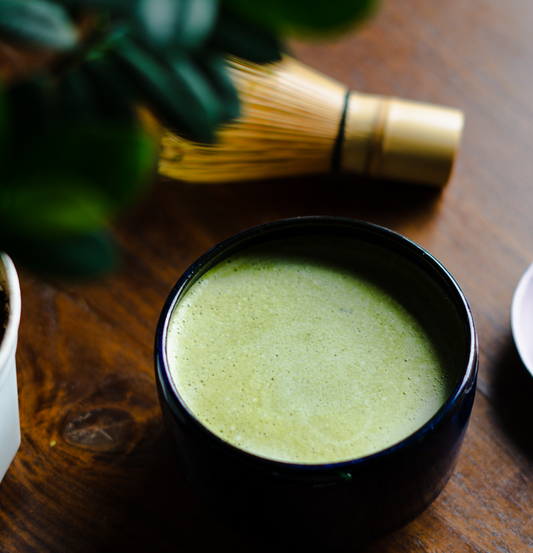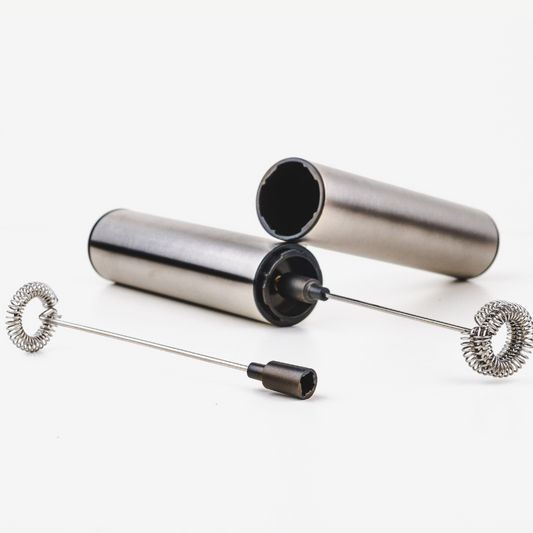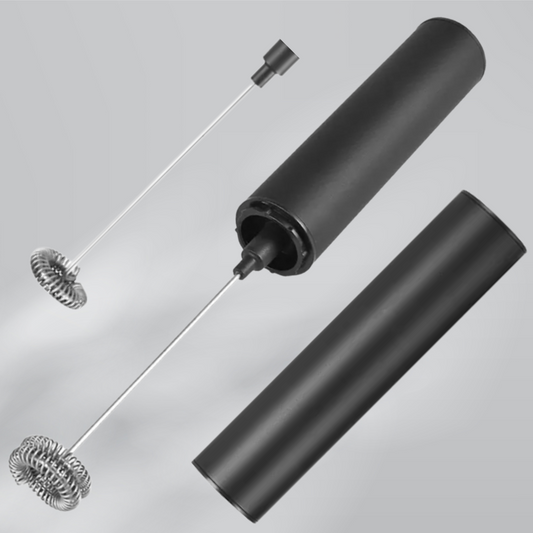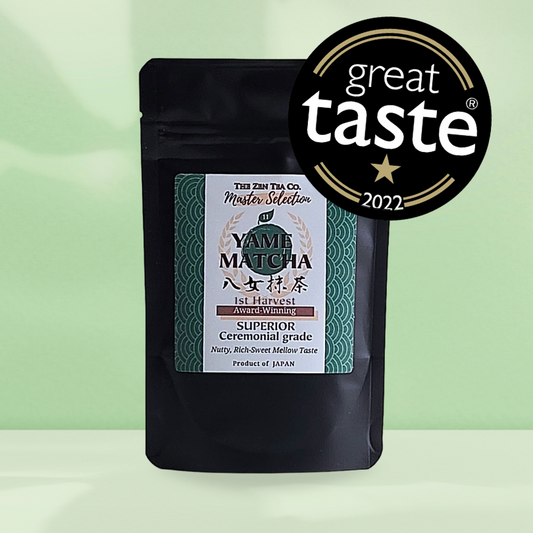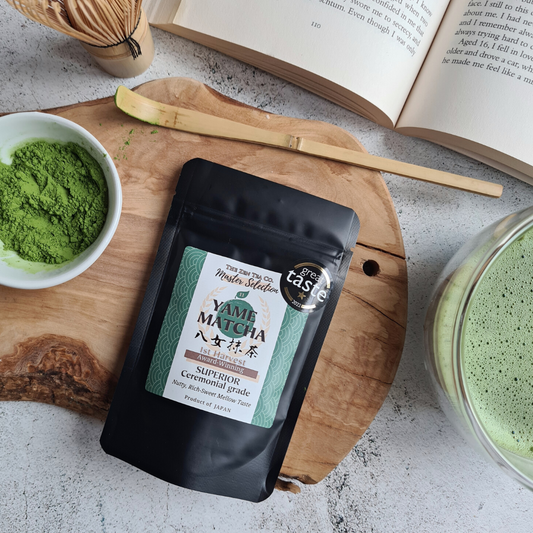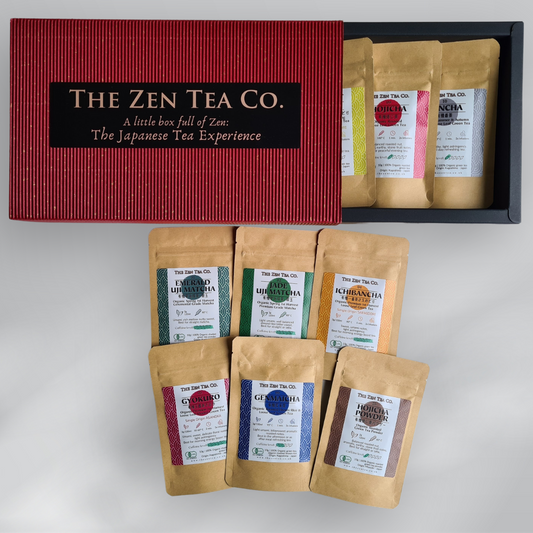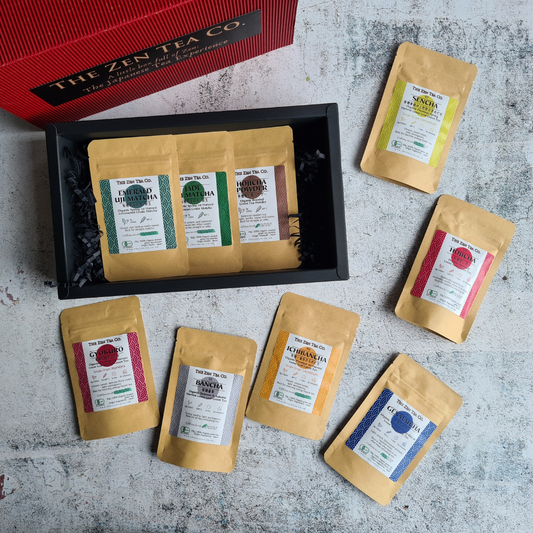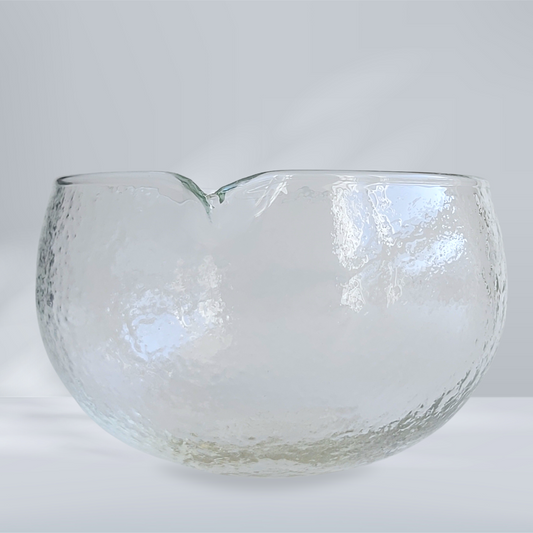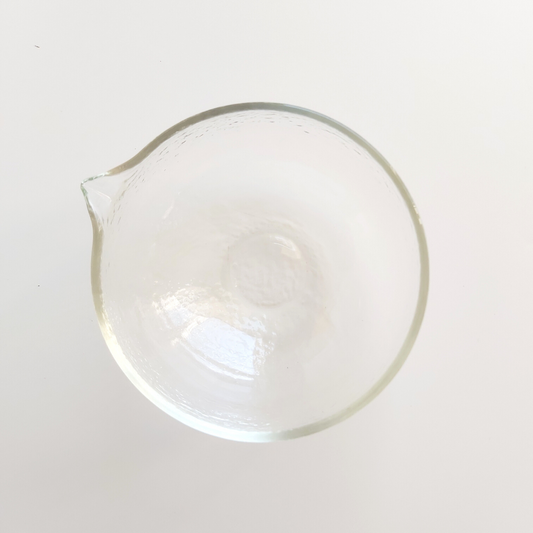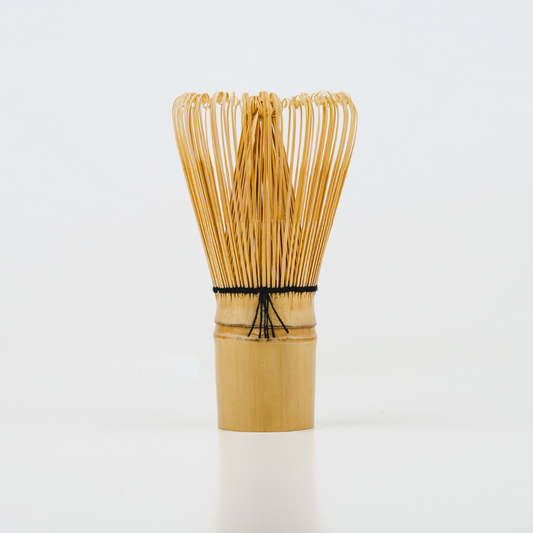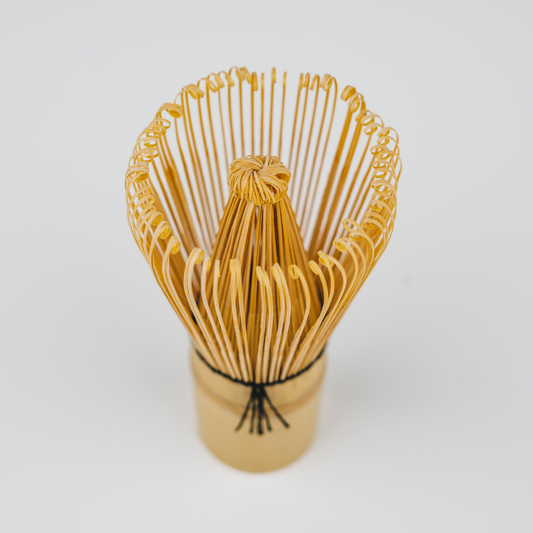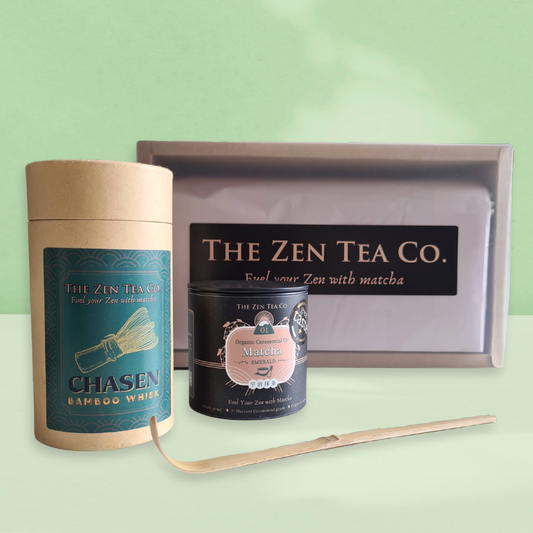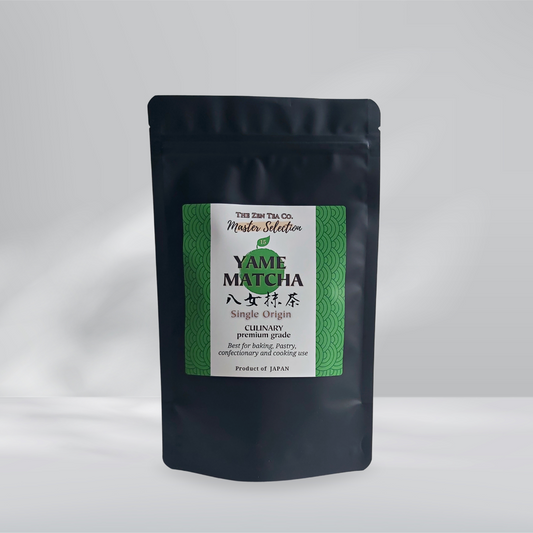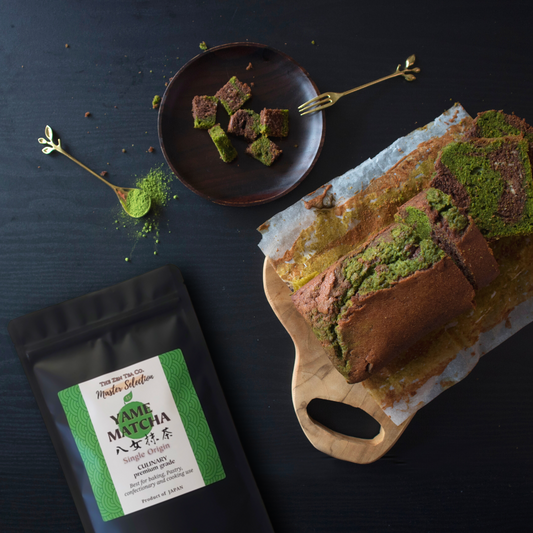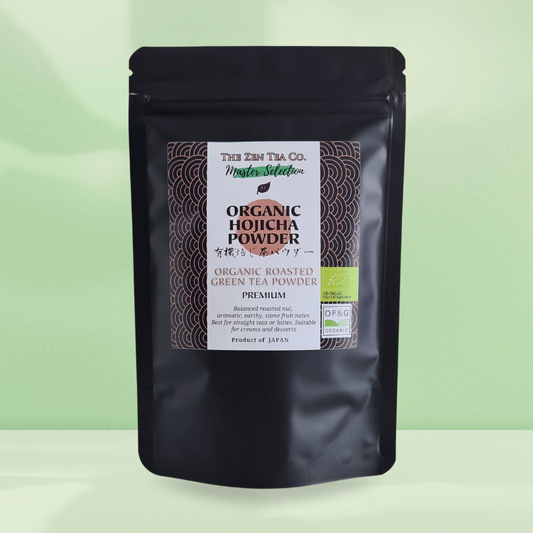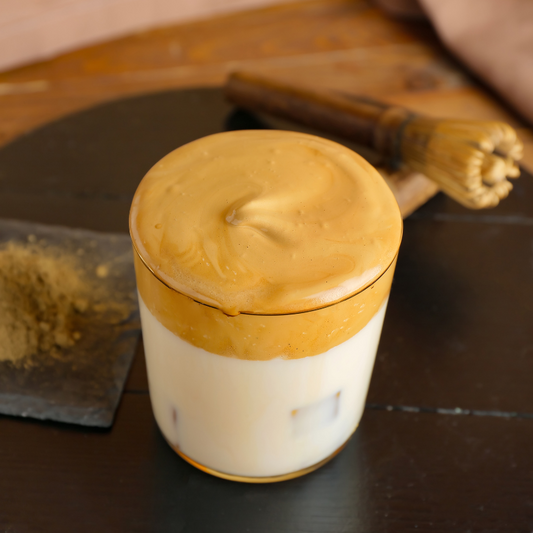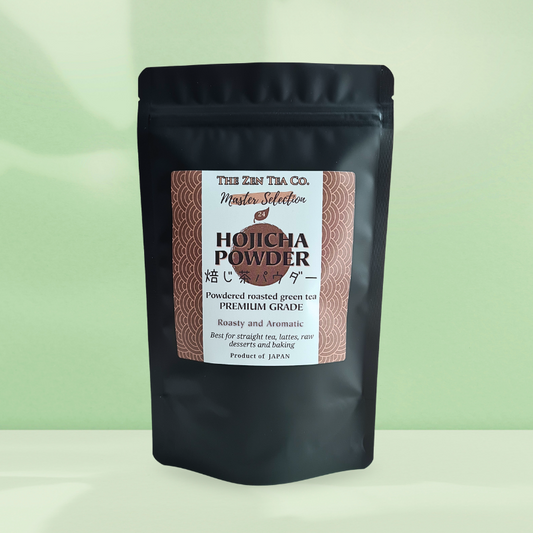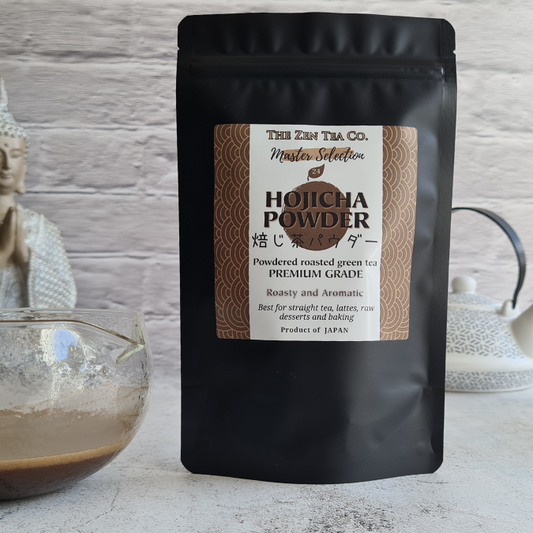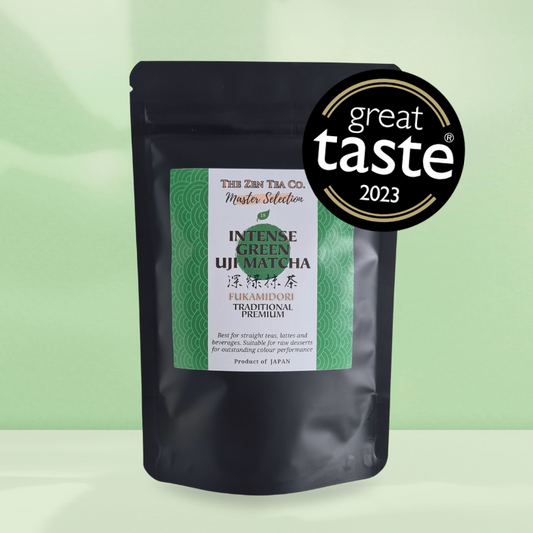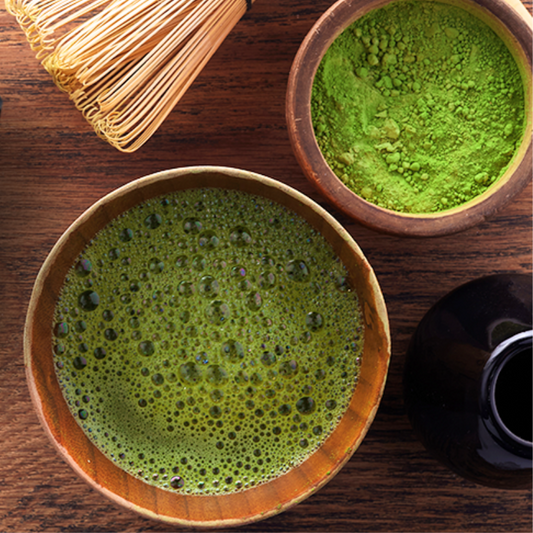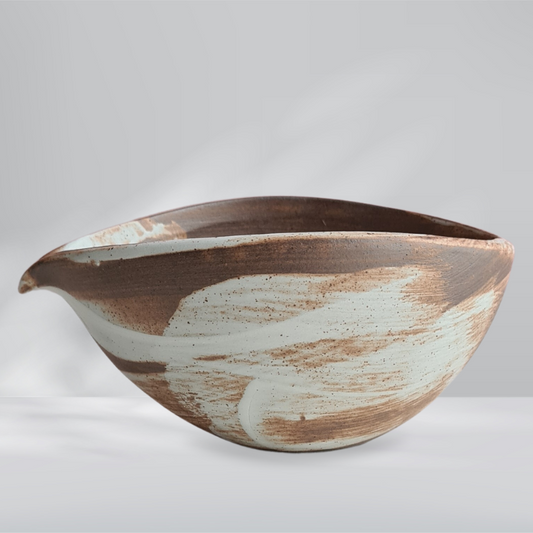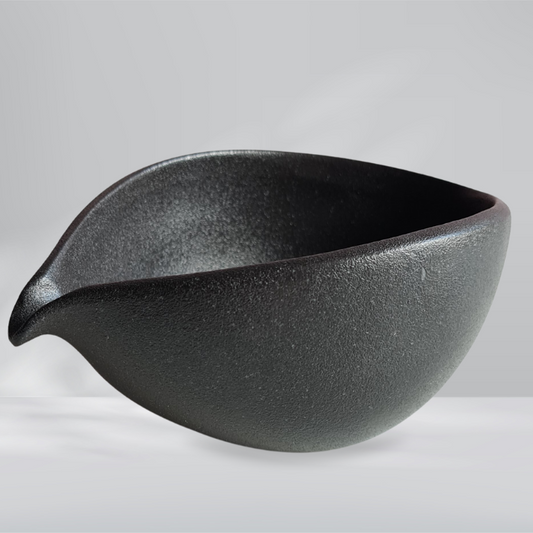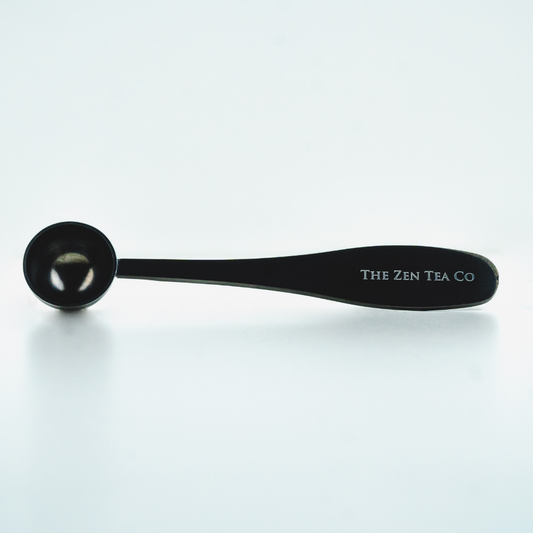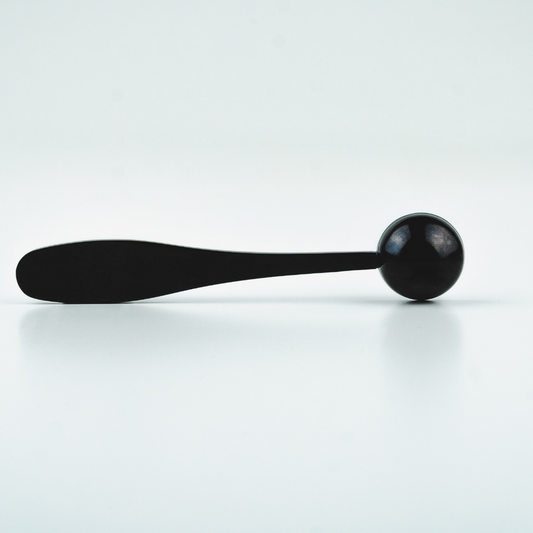Scientific researches: what does science say about matcha?

At The Zen Tea Co. we take our mission seriously, that is why we want to share with your the sources and the studies that demonstrate the benefits of matcha. Here's the list:
1. "Acute effects of tea constituents L-theanine, caffeine, and epigallocatechin gallate on cognitive function and mood: a systematic review and meta-analysis”, Nutrition Reviews. 2014 Aug;72(8):507-22, https://www.ncbi.nlm.nih.gov/pubmed/24946991
2. “The effects of L-theanine on alpha-band oscillatory brain activity during a visuo-spatial attention task” Brain Topogr. 2009 Jun;22(1):44-51, https://www.ncbi.nlm.nih.gov/pubmed/18841456
3. "A double-blind, placebo-controlled study evaluating the effects of caffeine and L-theanine both alone and in combination on cerebral blood flow, cognition and mood”, Psychopharmacology (Berl). 2015 Jul;232(14):2563-76, https://www.ncbi.nlm.nih.gov/pubmed/25761837
4. “Acute effects of tea consumption on attention and mood”, The American Journal of Clinical Nutrition, Volume 98, Issue 6, 1 December 2013, http://ajcn.nutrition.org/content/early/2013/10/30/ajcn.113.058248.abstract
5. "Green tea effects on cognition, mood and human brain function: A systematic review”, Phytomedicine. 2017 Oct 15;34:26-37, https://www.ncbi.nlm.nih.gov/pubmed/28899506
6. “Green tea extract enhances parieto-frontal connectivity during working memory processing”, Psychopharmacology (Berl). 2014 Oct;231(19):3879-88, https://www.ncbi.nlm.nih.gov/pubmed/24643507
7. “An intervention study on the effect of matcha tea, in drink and snack bar formats, on mood and cognitive performance”, Food Research Int. 2017 Sep;99(Pt 1):72-83, https://www.ncbi.nlm.nih.gov/pubmed/28784536
8. “Determination of catechins in matcha green tea by micellar electrokinetic chromatography”, Journal of Chromatography A. 2003 Sep 5;1011(1-2):173-80, https://www.ncbi.nlm.nih.gov/pubmed/14518774
9. "The Powdering Process with a Set of Ceramic Mills for Green Tea Promoted Catechin Extraction and the ROS Inhibition Effect”, “Molecules” 2016, 21(4), 474; http://www.mdpi.com/1420-3049/21/4/474
10. “Catechin- and caffeine-rich teas for control of body weight in humans”, The American Journal of Clinical Nutrition, Volume 98, Issue 6, 1 December 2013, https://academic.oup.com/ajcn/article/98/6/1682S/4577486
11. “The Effects of Green Tea Consumption and Resistance Training on Body Composition and Resting Metabolic Rate in Overweight or Obese Women”, Journal of Medicinal FoodVol. 16, No. 2, https://www.ncbi.nlm.nih.gov/pubmed/23140132
12. “Epigallocatechin-3-gallate Increases the Expression of Genes Related to Fat Oxidation in the Skeletal Muscle of High Fat-Fed Mice.” “Food & Function” 2011, https://www.ncbi.nlm.nih.gov/pmc/articles/PMC3400462/
13. “The effects of the aqueous extract and residue of Matcha on the antioxidant status and lipid and glucose levels in mice fed a high-fat diet.”. “Food & Function” 2016 Jan;7(1):294-300, https://www.ncbi.nlm.nih.gov/pubmed/26448271
14. “Chemoprevention of human prostate cancer by oral administration of green tea catechins in volunteers with high-grade prostate intraepithelial neoplasia: a preliminary report from a one-year proof-of-principle study”, “Cancer Research” 2006; 66:1234–40, https://www.ncbi.nlm.nih.gov/pubmed/16424063
15. “Metabolic consequences of LDHA inhibition by epigallocatechin gallate and oxamate in MIA PaCa-2 pancreatic cancer cells”, "Metabolomics”, https://link.springer.com/article/10.1007%2Fs11306-014-0672-8
16. “Differential prooxidative effects of the green tea polyphenol, (–)‐epigallocatechin‐3‐gallate, in normal and oral cancer cells are related to differences in sirtuin 3 signaling”, “Molecular Nutrition and Food Research”, https://onlinelibrary.wiley.com/doi/abs/10.1002/mnfr.201400485
17. “Prospective cohort study of tea consumption and risk of digestive system cancers: results from the Shanghai Women’s Health Study”, “The American Journal of Clinical Nutrition”, Volume 96, Issue 5, 1 November 2012, https://academic.oup.com/ajcn/article/96/5/1056/4576999
18. “Green tea consumption and mortality due to cardiovascular disease, cancer, and all causes in Japan: the Ohsaki study”, JAMA. 2006 Sep 13;296(10):1255-65, https://www.ncbi.nlm.nih.gov/pubmed/16968850
19.“Association of green tea consumption with mortality due to all causes and major causes of death in a Japanese population: the Japan Public Health Center-based Prospective Study (JPHC Study)”, "Annals of Epidemiology” 2015 Jul;25(7):512-518.e3. https://www.ncbi.nlm.nih.gov/pubmed/25900254
20. “The Impact of Green Tea and Coffee Consumption on the Reduced Risk of Stroke Incidence in Japanese Population”, “Stroke” 2013, http://stroke.ahajournals.org/content/early/2013/03/14/STROKEAHA.111.677500
21. “Prevention of abdominal aortic aneurysm progression by oral administration of green tea polyphenol in a rat model”, “Journal of Vascular Surgery” 2016, https://www.ncbi.nlm.nih.gov/pubmed/27473778
22. “Tea and bone health: steps forward in translational nutrition”, The American Journal of Clinical Nutrition, Volume 98, Issue 6, 1 December 2013, https://academic.oup.com/ajcn/article/98/6/1694S/4577502
Shop
-
Organic Emerald Matcha Tea Powder - Ceremonial Grade Matcha from Uji
Regular price £38.00Regular priceUnit price / per£38.00Sale price £38.00 -
Energy whisk - USB electric frother
Regular price £23.50Regular priceUnit price / per£23.50Sale price £23.50 -
11 - Yame Matcha Award Winning - Ceremonial Matcha Tea
Regular price From £32.00Regular priceUnit price / per£0.00Sale price From £32.00 -
The Japanese tea experience box | Green tea discovery gift set
Regular price £39.00Regular priceUnit price / per£39.00Sale price £39.00 -
Matcha whisking bowl - glass bowl with serving spout
Regular price £29.00Regular priceUnit price / per£29.00Sale price £29.00 -
Matcha Bamboo Whisk - Japanese Chasen
Regular price £17.50Regular priceUnit price / per£17.50Sale price £17.50 -
Organic Emerald Matcha Tea Traditional Gift Set | Matcha starter kit
Regular price £50.00Regular priceUnit price / per£59.00Sale price £50.00Sold out -
15 - Yame Matcha - 80g Pouch Culinary Matcha Tea for Baking and Cooking
Regular price £21.00Regular priceUnit price / per£21.00Sale price £21.00Sold out -
25 - Organic Hojicha Powder - Premium Japanese Roasted Green Tea Powder
Regular price £21.00Regular priceUnit price / per£21.00Sale price £21.00 -
Hojicha Powder - Premium, 80g pouch Japanese Roasted Green Tea Powder
Regular price £19.00Regular priceUnit price / per£19.00Sale price £19.00 -
18 - Uji Matcha Intense Green - Matcha Tea for Lattes and Raw Desserts
Regular price £25.00Regular priceUnit price / per£25.00Sale price £25.00 -
Matcha whisking bowl - Ceramic bowl with serving spout
Regular price £31.00Regular priceUnit price / per£31.00Sale price £31.00Sold out -
Stainless steel matcha spoon
Regular price £6.00Regular priceUnit price / per£6.00Sale price £6.00 -
Matcha Bamboo Spoon - Traditional Japanese Chashaku
Regular price £6.00Regular priceUnit price / per£6.00Sale price £6.00 -
Organic Emerald Ceremonial Matcha Contemporary Gift Set | Matcha starting kit
Regular price £64.00Regular priceUnit price / per£64.00Sale price £64.00Sold out
More from the Blog
View all-

What’s Really Going On with Matcha Supply in Ja...
Matcha lovers, take note: Japan’s recent harvests have been smaller than usual, and the effects are starting to show. In this article, we explore what’s happening with matcha supply in...
What’s Really Going On with Matcha Supply in Ja...
Matcha lovers, take note: Japan’s recent harvests have been smaller than usual, and the effects are starting to show. In this article, we explore what’s happening with matcha supply in...
-

Matcha Face Mask: 3 recipes to make your own at...
Make your own Matcha face mask! Matcha is full of anti-oxidants and it has loads of antimicrobial properties, which not…
Matcha Face Mask: 3 recipes to make your own at...
Make your own Matcha face mask! Matcha is full of anti-oxidants and it has loads of antimicrobial properties, which not…
-

6 Matcha Party Recipe Ideas for St. Patrick's Day
Despite its vibrant green hue, matcha isn't just for sipping traditional Japanese tea. This finely milled green tea powder adds a striking colour and an invigorating flavour to all kinds...
6 Matcha Party Recipe Ideas for St. Patrick's Day
Despite its vibrant green hue, matcha isn't just for sipping traditional Japanese tea. This finely milled green tea powder adds a striking colour and an invigorating flavour to all kinds...
-
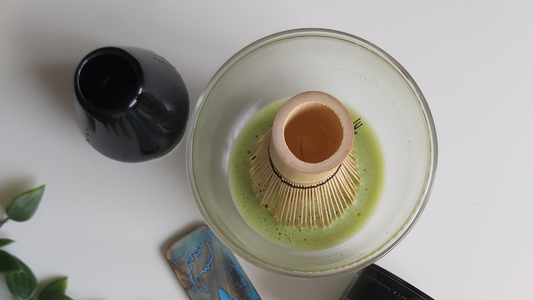
Chasen: the bamboo whisk to make your perfect M...
How can you elevate your matcha game? Simple! With a bamboo whisk In the world of tea, few experiences can match the serenity and beauty of the traditional Japanese matcha...
Chasen: the bamboo whisk to make your perfect M...
How can you elevate your matcha game? Simple! With a bamboo whisk In the world of tea, few experiences can match the serenity and beauty of the traditional Japanese matcha...

